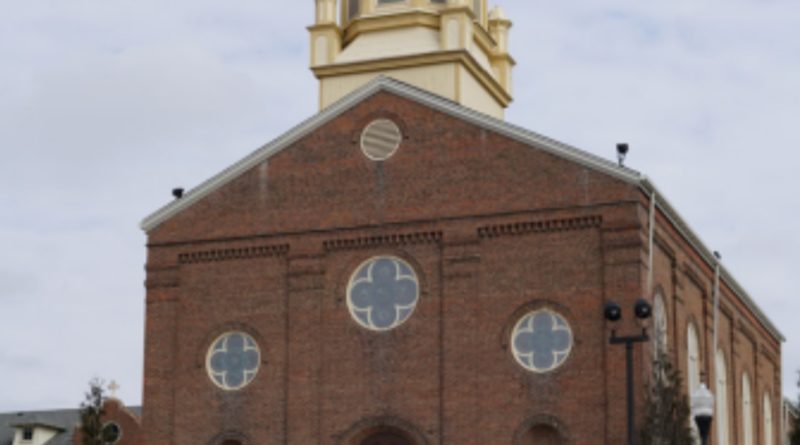UD Complies with Ohio’s ‘Bathroom Law
Gracelin O’Malley | Contributing Writer
The University of Dayton’s response to Ohio House Bill 183, the law that mandates single-sex bathroom access in schools based on biological gender, is to do nothing because its facilities already are in compliance with the law, two highly placed university officials said.
“We intend to comply with the law, while maintaining our Catholic, Marianist values of being a place of mutual respect, where all members of our community feel welcome, supported and safe,” Dean of Students Christine Schramm and Rick Krysiak, vice president for facilities management and planning, told Flyer News this month.
HB 183, known as the “Protect All Students Act,” also updates regulations for community charter schools. Concerns about the safety and comfort of students who identify as transgender or non-binary have sparked important discussions about inclusivity and respect within school environments.
The law “impacts guests, administrations, staff, faculty, it impacts everyone not just transgender and non-binary students,” said a transgender UD student who asked not to be identified by name for this article.
The bill defines “biological sex” and lays out specific rules for restrooms, locker rooms, and overnight accommodations in primary and secondary schools, as well as colleges and universities. It aims to create clear guidelines for bathroom access while also improving accountability and performance standards for community schools.
The bill, signed by Gov. Mike DeWine in November 2024, went into effect 90 days later, by law, which means the bill became law in February. The bill had been added to Senate Bill 104 as an amendment and passed in the Ohio House in June 2024, then was sent back to committees for final approval, according to the Ohio Capital Journal.
The America Medical Association officially opposes policies preventing transgender individuals from accessing basic human services and public facilities consistent with gender identity.
One of the key parts of the bill mandates that schools designate multi-occupancy restrooms and locker rooms exclusively for either male or female biological sex. It prohibits anyone from using facilities meant for the opposite biological sex and bans the construction of non-gendered multi-occupancy facilities.
The bill also requires that overnight accommodations be separated by biological sex but allows for some flexibility in providing options for students with special circumstances. There are exemptions in place for certain individuals, such as children under 10 and those with disabilities, to ensure that the rules don’t create unnecessary burdens.
The legislation also updates rules for community schools, detailing contract requirements that cover educational programs, academic goals, admission procedures, and compliance with state laws. It emphasizes the responsibilities of community school sponsors, requiring them to monitor compliance and provide support.
The “Protect All Students Act” aims to ensure accountability and improve performance in community schools while highlighting the importance of following various educational mandates. As the bill progresses, it may face legal challenges regarding the bathroom provisions and will require schools to adapt their facilities and policies accordingly.
“The University of Dayton’s facilities and signage comply with the law, so the University did not make changes. Our campus is equipped with 76 single-occupancy restrooms, with at least one such restroom in most buildings, Schramm and Krysiak said in an email response to Flyer News.
However, the issue of safety for students who present as their preferred gender in male or female restrooms is a significant concern. A male-presenting individual may inadvertently provoke anxiety or discomfort among others when entering a female restroom, even though the restroom aligns with their designated “biological sex.”
“It is putting so many students on our campus in danger, said the UD student who asked not to be identified by name for this article.
The ongoing dialogue about safety and inclusivity is crucial.
“The Counseling Center is always an option for students who need support, as is Campus Ministry and the Brook Center. There are other resources that can be found on Porches.
We, as a university, will continue to lean into the Marianist charism of inclusivity and our sense of community for all students, staff, and faculty,” Schramm and Krysiak said.
“At UD, we understand that diversity is a gift of God’s creation, and we are committed to honoring the intrinsic value and dignity of all people – this long has been and will remain at the center of our thinking and actions,” both said in their response to Flyer News.
EDITOR’S NOTE: O’Malley is enrolled in the Flyer News Practicum, offered through the Department of Communication. Most students in the Practicum are assigned stories to write. Some execute photo assignments. Others may want to produce a podcast or work on FN social media. All Practicum assignments are geared toward giving students the chance to have their work published on the student-run online newspaper website.

